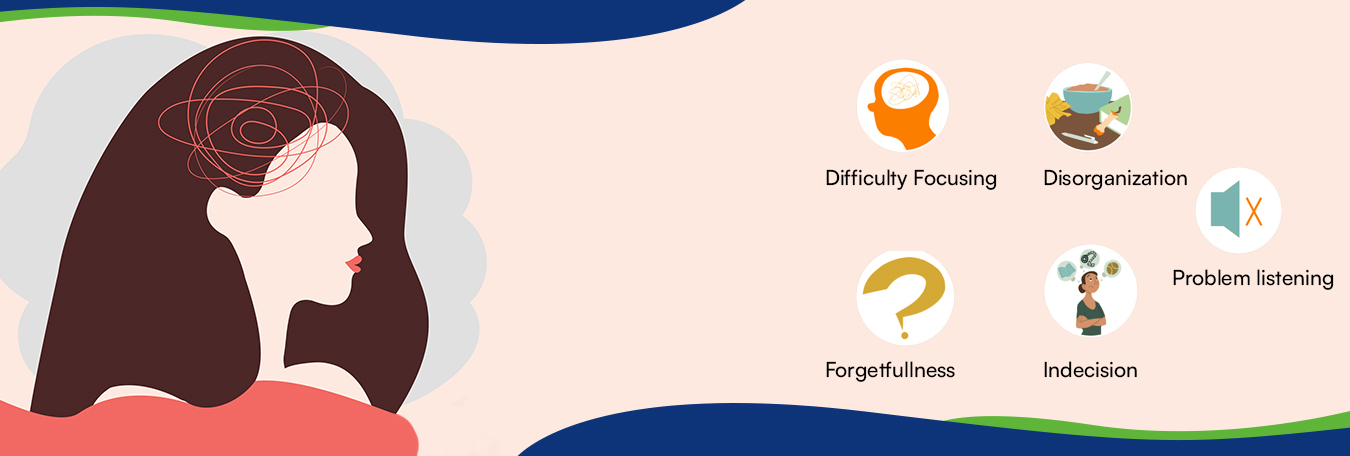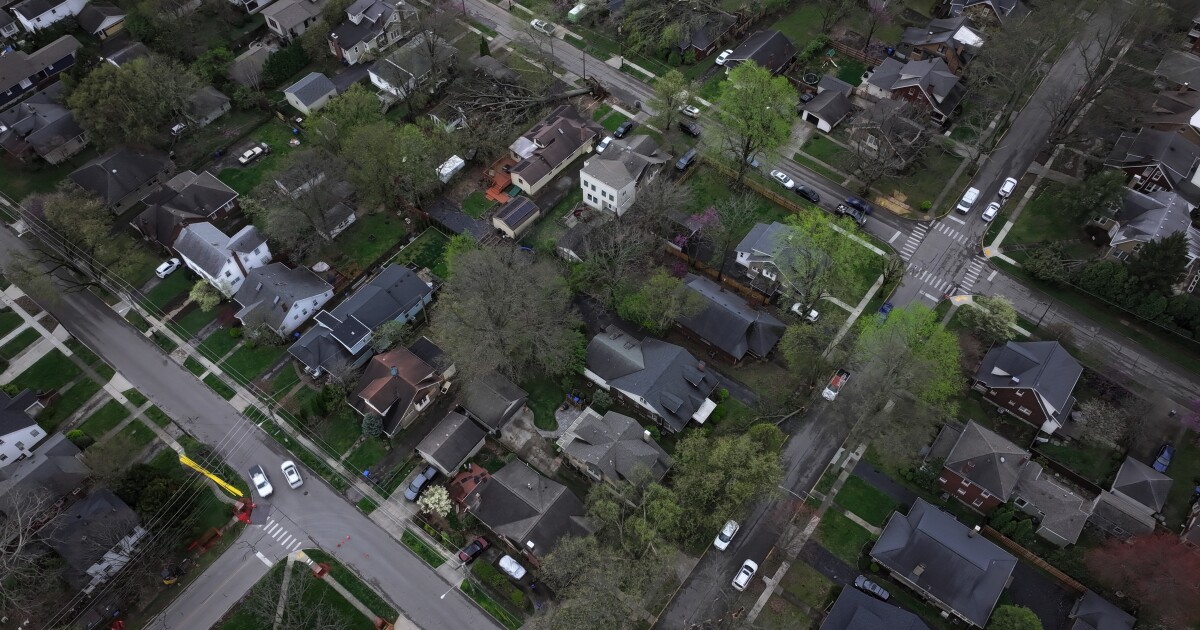What To Do If You Suspect Adult ADHD

Table of Contents
Recognizing the Signs of Adult ADHD
Adult Attention-Deficit/Hyperactivity Disorder (ADHD) is a neurodevelopmental disorder that can significantly impact daily life. While often diagnosed in childhood, many adults remain undiagnosed, struggling with symptoms that affect their work, relationships, and overall well-being. Understanding the signs is the first crucial step.
Common Symptoms of Adult ADHD
Symptoms of adult ADHD often differ from those seen in children. They frequently manifest as challenges with organization, time management, and emotional regulation, rather than hyperactivity alone. These symptoms can be broadly categorized into:
-
Inattention:
- Difficulty sustaining attention in tasks or activities.
- Easily distracted by extraneous stimuli.
- Frequent forgetfulness of daily tasks, appointments, or belongings.
- Trouble following through on instructions or completing tasks.
- Difficulty organizing tasks and activities.
-
Hyperactivity/Impulsivity:
- Restlessness and fidgeting.
- Difficulty sitting still in situations where it's expected.
- Interrupting others frequently during conversations.
- Difficulty waiting one's turn.
- Acting without thinking, leading to regrettable actions or consequences.
-
Emotional Regulation:
- Irritability and short temper.
- Frequent mood swings and emotional instability.
- Difficulty managing frustration and stress.
- Low self-esteem and feelings of inadequacy.
- Proneness to anxiety and depression.
Differentiating ADHD from Other Conditions
It’s important to note that many conditions share symptoms with ADHD. Anxiety, depression, and even certain learning disabilities can present with similar challenges in focus, organization, and emotional control. A professional diagnosis is crucial to differentiate ADHD from these other conditions, ensuring accurate treatment.
Self-Assessment Tools for ADHD
Several self-assessment tools are available online that can offer a preliminary indication of whether you might have ADHD. These questionnaires and checklists shouldn't be considered definitive diagnoses, but they can be helpful starting points. Examples include online questionnaires from reputable mental health organizations. Remember, a self-assessment is not a diagnosis. It's essential to seek professional evaluation for accurate diagnosis.
Seeking Professional Help for Adult ADHD
Once you've identified potential symptoms, the next step is seeking professional help. This is crucial for accurate diagnosis and personalized treatment.
Finding the Right Professional for ADHD Diagnosis
It's vital to consult a qualified healthcare professional experienced in diagnosing and treating adult ADHD. This could be a psychiatrist, psychologist, or other licensed mental health provider specializing in ADHD. Ask for referrals from your primary care physician or search online for specialists in your area.
Preparing for Your Appointment
To maximize the effectiveness of your appointment, prepare by:
- Journaling your symptoms: Keep a detailed record of your experiences, noting specific situations, frequency of symptoms, and their impact on your daily life.
- Listing your challenges: Identify areas where your suspected ADHD significantly affects your work, relationships, or overall well-being.
- Bringing a supportive friend or family member: They can offer additional perspectives and insights during the consultation.
The Diagnostic Process for Adult ADHD
The diagnostic process involves a comprehensive evaluation that typically includes:
- Detailed interviews: Discussing your symptoms, history, and challenges.
- Questionnaires and assessments: Completing standardized tests to measure attention, impulsivity, and hyperactivity.
- Neuropsychological testing (in some cases): Further evaluations to rule out other conditions and assess cognitive functions.
Treatment Options for Adult ADHD
Once diagnosed, a range of treatment options are available to manage symptoms and improve quality of life. Treatment is often personalized, combining different approaches for optimal results.
Medication Management for Adult ADHD
Medication is often a cornerstone of ADHD treatment. Common options include stimulants and non-stimulants. These medications can improve focus, reduce impulsivity, and enhance overall functioning. However, it’s crucial to remember that medication has potential side effects, and close monitoring by your healthcare professional is essential.
Therapy and Coaching for Adult ADHD
Therapy, such as Cognitive Behavioral Therapy (CBT), can be incredibly beneficial in developing coping strategies for ADHD challenges. ADHD coaching provides additional support and guidance in managing daily life, improving organization, and enhancing time management skills.
Lifestyle Changes to Support ADHD Treatment
Lifestyle modifications play a vital role in supporting medical and therapeutic interventions. This includes:
- Regular exercise: Physical activity can improve focus and reduce impulsivity.
- Healthy diet: Nourishing your body with a balanced diet can positively impact brain function and energy levels.
- Sufficient sleep: Aim for 7-9 hours of quality sleep nightly.
- Stress management techniques: Practices such as meditation or yoga can help manage stress and improve emotional regulation.
Support and Resources for Adults with ADHD
Living with ADHD can be challenging, but you don't have to face it alone. Numerous support systems and resources are available to help.
Support Groups for Adults with ADHD
Connecting with others who understand the challenges of living with ADHD can be incredibly valuable. Join online or in-person support groups to share experiences, receive encouragement, and build a sense of community.
Online Resources for ADHD
Several reputable online resources offer valuable information, support, and community. and are excellent starting points.
Advocacy Organizations for ADHD
Several organizations advocate for the rights and needs of individuals with ADHD, providing valuable support and resources. [Link to relevant advocacy organization].
Taking the Next Steps with Adult ADHD
Suspecting you have adult ADHD is the first step towards a better life. Remember the key takeaways: recognize the symptoms, seek professional help for an accurate diagnosis, explore treatment options tailored to your needs, and utilize available support resources. Don't delay seeking help for adult ADHD. Take the first step towards managing your adult ADHD and improving your quality of life. Learn more about adult ADHD diagnosis and treatment today.

Featured Posts
-
 Recent Russian Military Developments And European Security
Apr 29, 2025
Recent Russian Military Developments And European Security
Apr 29, 2025 -
 Jeff Goldblum And Emilie Livingston A Look At Their Marriage And Family Life
Apr 29, 2025
Jeff Goldblum And Emilie Livingston A Look At Their Marriage And Family Life
Apr 29, 2025 -
 Understanding The Delays In Kentuckys Storm Damage Assessments
Apr 29, 2025
Understanding The Delays In Kentuckys Storm Damage Assessments
Apr 29, 2025 -
 36 Years Later An Ohio Doctors Parole Hearing And A Sons Emotional Dilemma
Apr 29, 2025
36 Years Later An Ohio Doctors Parole Hearing And A Sons Emotional Dilemma
Apr 29, 2025 -
 Hudsons Bay Liquidation Up To 70 Off At Closing Stores
Apr 29, 2025
Hudsons Bay Liquidation Up To 70 Off At Closing Stores
Apr 29, 2025
